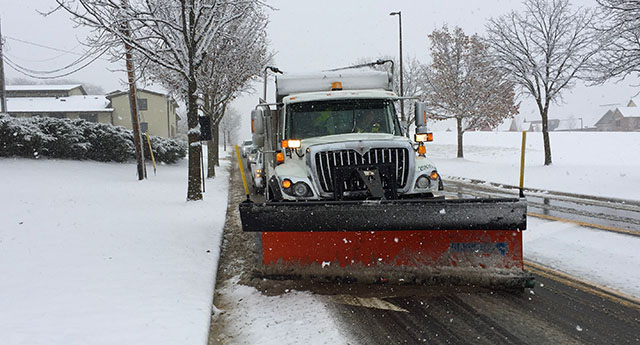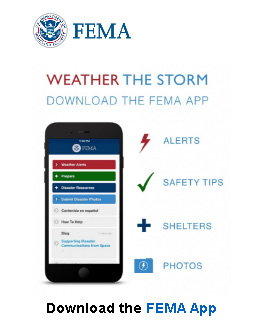
Governor Mike DeWine and Lt. Governor Jon Husted have declared Nov. 14 through 20 as Winter Safety Awareness Week, which encourages Ohioans to take simple steps to help minimize risks associated with winter weather. This is in a coordinated effort with the Ohio Committee for Severe Weather Awareness. Click to view the 2021 Winter Safety Awareness Week Resolution.
“Winter Safety Awareness Week is the ideal time for Ohioans to prepare for winter and cold weather-related incidents,” said Ohio Emergency Management Agency Executive Director Sima Merick. “Take time to restock your emergency supply kits, ensure your home and vehicles are prepped and maintained and review your emergency plans. Also, it’s not too late to get vaccinations to protect yourself and family from influenza and the coronavirus.”
According to the National Oceanic Atmospheric Administration’s (NOAA) annual U.S. Winter Outlookprecipitation map, states in the Midwest including Ohio are leaning toward above-normal or wetter-than-average precipitation this winter.
NOAA also noted that La Niña climate conditions will continue for the second consecutive winter. La Niña is a natural ocean-atmospheric phenomenon marked by cooler-than-average sea surface temperatures across the central and eastern Pacific Ocean near the equator.
“We need to be mindful that preparing for winter is not just getting ready for snow and ice,” Merick notes. “Just last month, a total of six tornadoes touched down in Ross, Highland, and Pickaway counties. We truly need to be prepared for all weather and home emergencies.”
The Ohio Committee for Severe Weather Awareness recommends the following winter travel, safety, and preparedness tips:
Practice fire safety and prevention. With the winter months, holiday season, and a continuing pandemic, people will be indoors more, and will cook, decorate, and possibly entertain more, which can lead to more home fires. The best protection is to have working smoke detectors in the home. Test your detectors monthly. Conduct fire drills.
Change the batteries in your smoke and carbon monoxide detectors twice a year: when you change your clocks, change your batteries. Have auxiliary heaters, furnaces, and fireplaces checked or serviced before using. Cooking-related fires are the number one cause of home fires. Never leave cooking food unattended. Keep towels, potholders, and paper products away from the stove’s heat sources.
Prepare your home for winter. Cut and remove low-hanging and dead tree branches. Strong winds, ice, and snow can cause tree limbs to break and cause damage to your home. Have your gutters cleaned. Snow and ice can build up quickly with debris if clogged and cause additional damage.
Prepare winter emergency supplies kits for the home and vehicle. Check the expiration dates on nonperishable food items, bottled water/beverages, and medications. Winter emergency kits should include essential items such as flashlights, extra batteries, blankets, coats, hats, gloves, a battery-operated radio/weather radio, first aid kit, cell phone and charger, and enough nonperishable food and water (one gallon per person, per day) to sustain every household member for several days. Lastly, store food, bottled water, and supplies for each of your pets.
Citizens should consider purchasing NOAA Weather Radios and investing in alternative heat sources. Residents are reminded to prepare their home and vehicles for winter and pay close attention to weather forecasts and traffic reports. For more information visit http://www.weathersafety.ohio.gov/ or http://www.ready.gov/winter-weather.
Winter Safety Tips for the Home – http://www.weathersafety.ohio.gov/WinterSafetyTips.aspx
Winter Safety Tips for the Vehicle – http://www.weathersafety.ohio.gov/WinterVehicleSafetyTips.aspx
Winter Health & Safety Tips – http://www.weathersafety.ohio.gov/WinterHealthSafetyTips.aspx
Winter Driving Tips – http://www.weathersafety.ohio.gov/WinterIceAndSnowTakeItSlow.aspx
Snow Emergency Classifications – http://www.weathersafety.ohio.gov/snowemergencyclassifications.aspx

